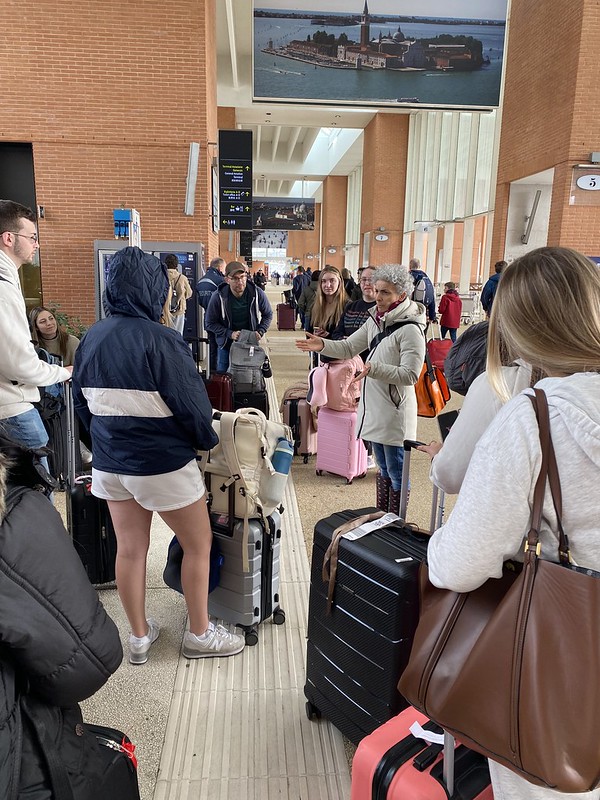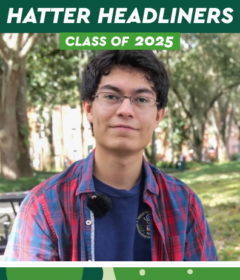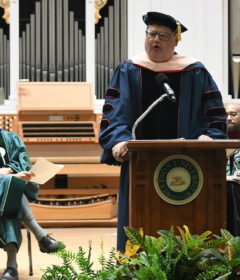Study Abroad: Madness in Venice
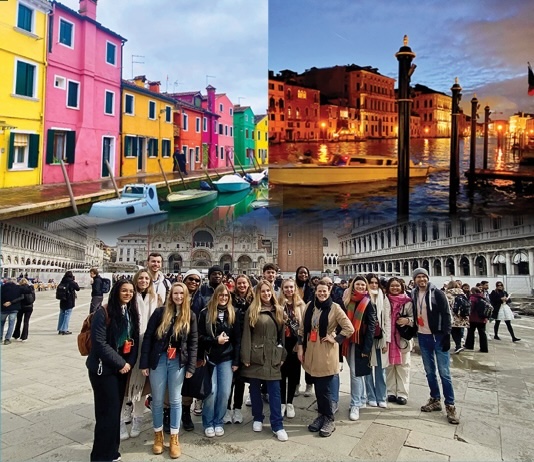
During Spring Break in March, 16 Stetson students traveled to Italy for nine days, led by their two course professors, as part of the Rinker Global Scholars Program. All of the students were selected for the study abroad opportunity and given a generous scholarship from Drs. David and Leighan Rinker, which significantly subsidized the program’s cost.
The new course, Madness in Venice, explores how the conceptualization of mental illness has changed across time –— developed and co-taught by Michael Eskenazi, PhD, associate professor of Psychology, and Melinda Hall, PhD, associate professor of Philosophy and interim associate dean of the College of Arts and Sciences.
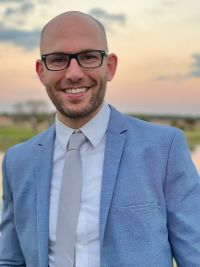
“No matter the student’s major, they understand the importance of mental health,” Eskenazi said. “Given the recent trends in college student mental health, this course topic was a timely and worthwhile investment for the Rinker Global Scholars Program.”
On campus during the semester, the students learned about the different approaches that philosophers and psychologists use in understanding history and human behavior, specifically honing in on the history of mental illness treatments over time in Venice. Once abroad, the experiential learning journey started with a short ferry ride to the San Servolo Insane Asylum, where the students were able to understand how the mentally ill were treated before the passage of the Basaglia Law in 1978, which led to more ethical treatment of people with mental illness.
The now-museum was full of instruments, equipment and imagery of patients who were held at the asylum. While an eerie energy filled the spaces of this once leading-edge psychiatric hospital, a sense of peace was felt knowing legislative changes had influenced not only better care for people with mental illnesses, but increased awareness of disability justice activism, having a positive ripple effect across the globe.
“Coming out of Venice now, our class is a lot closer, and were able to talk about these issues in a much more important and personal way than we had before,” commented Laura Cheshire, a senior Art Therapy major.
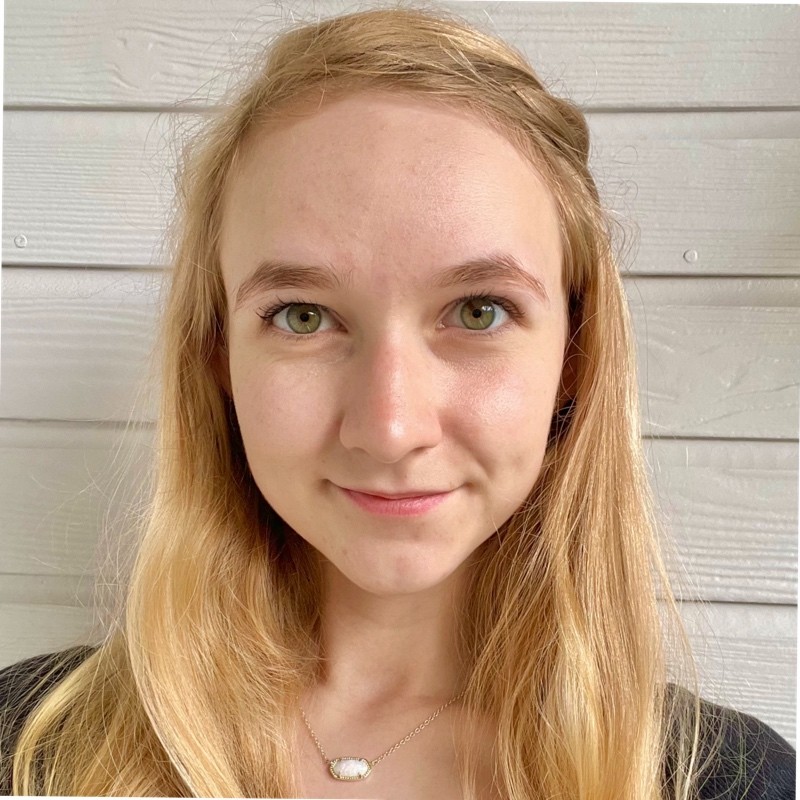
In addition to exploring other clinically relevant locations that coincided with their classroom studies, students enjoyed St. Mark’s Square, including famous landmarks such as St. Mark’s Basilica, Doge’s Palace and the Grand Canal, where continually operating gondola tours begin and end.
Venturing out of Venice to visit Verona, Bologna, and the islands of Murano and Burano, adjacent to the Venetian Lagoon, the group witnessed a private glass-blowing demonstration. Also, they toured a town sprinkled with small brightly painted houses owned by locals who have mastered the craft of lacemaking for hundreds of generations.
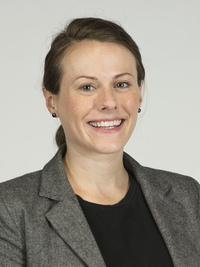
“The excursions allowed students to acquaint themselves with the harmonious aspects of Italy,” Hall noted. “I hope to call students to wonder about our obligations to others and to ourselves, the social structures and systems which impact the ways we understand each other and our own subjectivity, and who belongs in our moral communities and why.”
Eskenazi believes that as Stetson’s new Strategic Priorities outline the importance of people, culture and inclusive excellence, this study abroad course taught students the power of global citizenship by showing them the implications and improvements one country can have on the world.
“I have seen immense personal and academic transformation in students as they open their minds to new experiences, interact with people from different cultures, and learn how historical events in foreign countries are directly related to their studies and lives today,” Eskenazi concluded.
Note: Students interested in studying abroad can explore Faculty-Led or Exchange Programs through WORLD.
-Heather Fontaine

